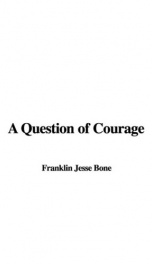Bone Jesse Franklin

Virgil Finlay (July 23, 1914–January 18, 1971) was a pulp fantasy, science fiction and horror illustrator. While he worked in a range of media, from gouache to oils, Finlay specialized in, and became famous for, beautifully detailed pen-and-ink drawings accomplished with abundant stippling, cross-hatching, and scratchboard techniques. Despite the very labor-intensive and time-consuming nature of his specialty, Finlay created more than 2600 works of graphic art in his 35-year career. Virgil Warden Finlay was born and raised in Rochester, New York; his father, woodworker Warden Hugh Finlay, died at age 40 in the midst of the Great Depression, leaving his family (widow Ruth and two children, Jean and Virgil) in straitened circumstances. By his high school years, Virgil Finlay exercised his passions for art and poetry, and discovered his lifelong subject matter through the pulp magazines of the era--science fiction, via Amazing Stories (1927), and fantasy and horror, via Weird Tales (1928), beginning to exhibit at the age of 16. By age 21 he was confident enough in his art to send six pieces, unsolicited, to editor Farnsworth Wright at Weird Tales. Once Wright determined that such detailed work would transfer successfully to relatively rough paper the magazine used (they were called "pulps" for a reason), he began buying Finlay's work. Finlay's illustrations debuted in the December 1935 issue of WT, and appeared in a total of 62 issues of the magazine, down to the last issue of the classic pulp in Sept. 1954. He also executed 19 color covers for WT, for issues from Feb. 1937 to March 1953. Finlay quickly branched out to other publications after his 1935 debut; he was an immediate hit. In 1938 he went to work for A. Merritt at The American Weekly, moving from Rochester to New York City. Later the same year, he married Beverly Stiles, whom he had known in childhood in Rochester (Nov. 16, 1938). His adjustment to the city and to his new job was not smooth, however; he was fired and re-hired more than once. Yet during his period on the magazine's staff (1938-43), and later as a freelancer (1946-51), Finlay estimated that he did 845 different images, large and small, for Merritt's magazine. Finlay served in the U.S. Army during World War II, and saw extensive combat in the South Pacific theatre, notably on Okinawa and did posters and illustrations for the Morale Services during his three years of military service. He resumed his artistic career after demobilization, doing a considerable amount of work for science fiction magazines and books. As the pulp magazine market narrowed through the 1950s, Finlay turned to astrology magazines as a new venue for his art. Finlay also wrote poetry throughout his adult life. Virtually none was published in his lifetime, though significant samples have been printed posthumously.[1] Finlay had to undergo major surgery for cancer in early 1969. He recovered enough to go back to work for a time; but the cancer returned, and Virgil Finlay died of the disease early in 1971, aged 56. Ironically, Finlay just missed a resurgence in interest in his artwork from the early 1970s onward. Both Donald M. Grant, Publisher, Inc. and Gerry de la Ree have published series of collections of Finlay artwork since the artist's death. The later books published by Underwood contain illustrations from the Gerry de la Ree editions, as well as additional material.
do you like this author?
What readers are saying
What do you think? Write your own comment on this book!
write a commentWhat readers are saying
What do you think? Write your own comment on this author!
write a commentBook list

The Lani People
Series:
Unknown
Year:
Unknown
Raiting:
1.5/5
Science fiction novel by (1916-1986) J. F. Bone, an American prose writer and professor of veterinary. “The Lani People” became his first novel, as well as the most outstanding of his works. It appears a durable example of conceptual overturn in science fiction: representatives of new space race, which possessed not only intellect, but also tails, are considered to be “of second quality” and deprived of any rights. The action takes place in the far future: a young veterinarian is hired to take care of these alien creatures. The novel is much about veterinarian work, what does not prevent touching ethics issues and discussion of humanness.
Show more
add to favoritesadd In favorites
What readers are saying
What do you think? Write your own comment on this author!
write a commentif you like Bone Jesse Franklin try:
readers also enjoyed
What readers are saying
What do you think? Write your own comment on this author!
write a commentGenre
if you like Bone Jesse Franklin try:
readers also enjoyed
Do you want to exchange books? It’s EASY!
Get registered and find other users who want to give their favourite books to good hands!


